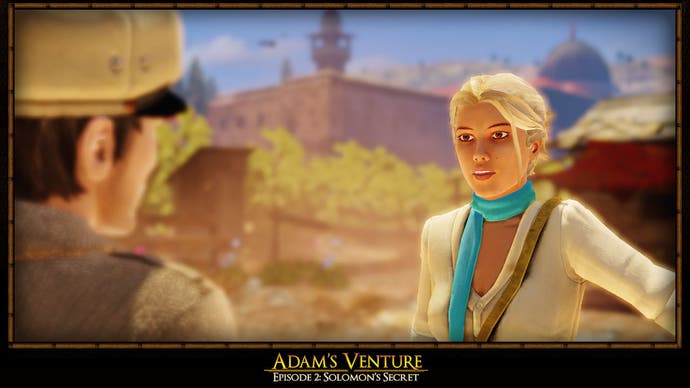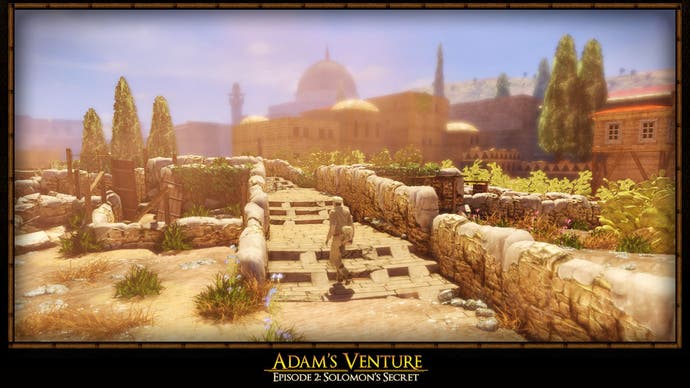Gaming for God
What would Jesus play?
It was supposed to be Christian gaming's Passion of the Christ moment. A turning point where religious games would go from mocked underdogs to mainstream contenders. Just as Mel Gibson stunned Hollywood in 2004 by turning his religious pet project into a box office smash, Left Behind: Eternal Forces was hyped as the game that would transform Christian gaming.
Everything seemed in place. A distribution deal with Wal-Mart, a publisher led by an ex-EA industry veteran and a decent wad of investor cash. And, crucially, the rights to the Left Behind books – a series of action-packed, post-apocalyptic Christian novels set after the Rapture that had sold in excess of 65 million copies.
Needless to say, the 2006 real-time strategy game never lived up to the hype. Savaged by critics, snubbed by shoppers and entangled in controversy over its content, Eternal Forces managed sales of just 100,000 copies. While good for a Christian game, it was a performance that publisher Left Behind Games described as "considerably short of our expectations".
After that failure, it wouldn't have been a surprise if Christian games faded away. If a well-funded, big-brand title with that much hype couldn't make it off the shop shelves what hope was there for the scrappy, underfunded and often dreadful output of most Christian developers?
But five years on from the false dawn of Eternal Forces, the Christian games scene is fighting on. In July the annual Christian Game Developers' Conference will celebrate its 10th year and the mood among Christian game makers is upbeat.

Chris Skaggs, the founder of Christian developer Soma Games, says one reason to be hopeful is that the barriers to game development have come crashing down: "When I was starting Soma Games in 2005, the only way to start was going into console games, but getting into consoles was so expensive – you needed a million dollars cash for Xbox to even look at you."
The spread of broadband, smartphone apps and free development tools has made developing cheaper and easier. As a result Soma joined the app game party and scored some success with G: Into the Rain, a sci-fi physics puzzler influenced by Spacewar! and the story of Noah's Ark.
Tim Emmerich, founder of the Christian Game Developers' Conference, says the rise of such tools has transformed the development landscape: "It's been a revolution for the whole industry and Christian teams have been able to take advantage of that."
At the same time, Christian studios are starting to move beyond their traditional offerings of tedious scripture quizzes and Biblical kids games.

"Christian games divide into two groups," says Emmerich. "The overt where it is obviously Christian and based on the Bible, and the covert games that look like regular games but where the underlying idea communicates some Christian aspect."
Skaggs sits in the allegorical camp: "We lean on what C. S. Lewis said when he wrote The Space Trilogy. He wanted the books to appeal to people who would never go to church and encourage them to think about eternal things. I feel our role is not to be Christians making games for Christians, but to put ourselves, including our Christianity, into mainstream work."
He says it's an approach that echoes the game industry's wider efforts to bring more depth into games. "At the last Game Developers' Conference, the conversations were almost universally about how gaming is maturing and how that requires us to bring more meaning into games," says Skaggs.

